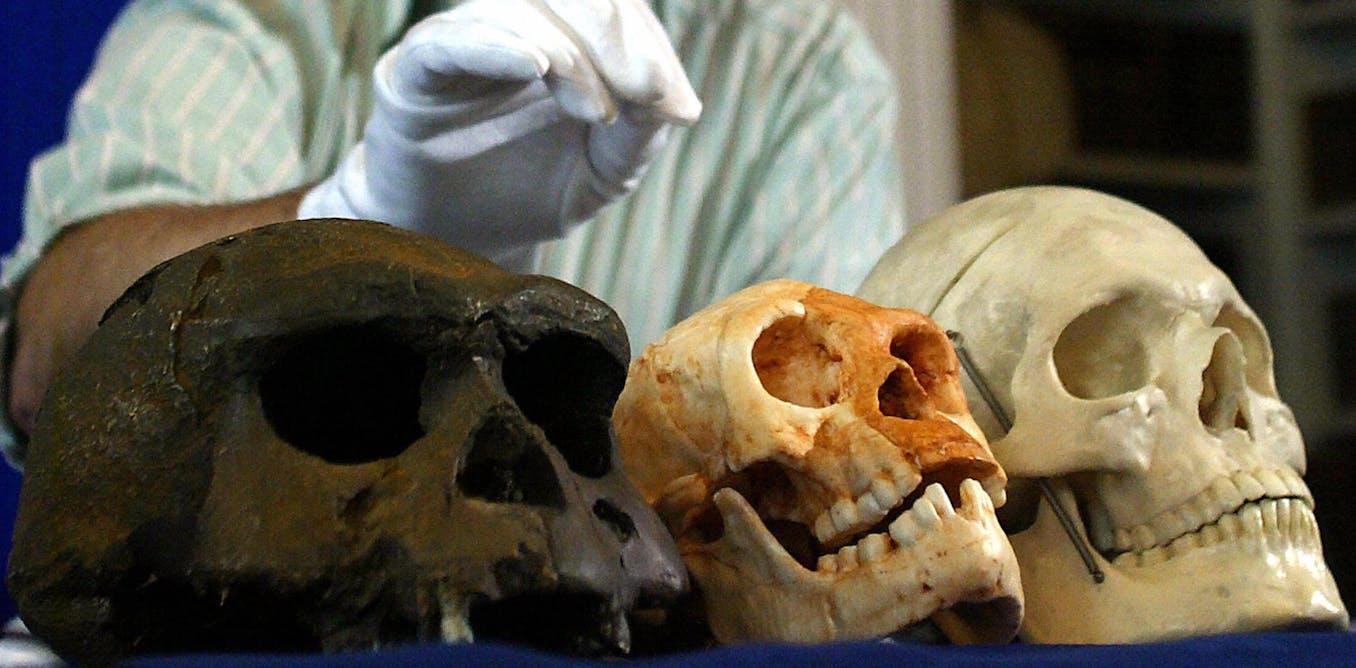Over six million Americans live with dementia, a neurodegenerative disease that takes more than 100,000 lives each year, per the National Institutes of Health (NIH). It’s estimated that nearly half of U.S. adults over the age of 55 will develop dementia.
However, a new meta-analysis found that it takes an average of four years to diagnose dementia in patients, even in the presence of early-onset symptoms. But what’s even more alarming, according to the Alzheimer’s Association, is that Alzheimer’s disease (the most common type of dementia) begins 20 years or more before symptoms manifest.
RELATED: Doctors Warn This Common Medication May Be Linked to Dementia Risk.
“During those years, the brain compensates for the changes by using alternate networks of neurons to enable individuals to continue to function normally. When the brain can no longer compensate and cognitive problems interfere with a person’s ability to perform everyday tasks such as driving, cooking or cleaning, a person is said to have dementia,” explains the organization.
It’s estimated that Alzheimer’s accounts for 60 to 80 percent of all dementia cases. Because symptoms develop over time, they’re often overlooked as natural age-related changes (i.e., forgetting plans or misplacing items around the house). This means a majority of patients aren’t medically diagnosed with dementia or Alzheimer’s until the disease has progressed.
This was found to be true in a new study published in the International Journal of Geriatric Psychiatry, in which a majority of both dementia and early-onset dementia patients received delayed diagnoses.
Researchers from the University College London systematically reviewed 13 previously published studies, involving 30,257 dementia patients from Europe, the U.S., Australia, and China. They measured the average time between symptom onset (determined by patients or family caregivers via interviews or medical records) and the official diagnosis. The age at onset ranged from 54 to 93 years.
Results showed that most dementia patients go undiagnosed for 3.5 years after the first sign of symptoms. The interval was even longer for those with early-onset dementia, with an average of 4.1 years until diagnosis. Additionally, the authors noted that “some groups [are] more likely to experience longer delays.”
“Timely diagnosis can improve access to treatments and for some people prolong the time living with mild dementia before symptoms worsen,” lead author Vasiliki Orgeta, PhD, an associate professor of the Division of Psychiatry at University College of London, said in a news release.
RELATED: Eating This Food 2 Times a Week Reduces Alzheimer’s Risk By 47%, New Study Finds.
Early warning signs of dementia and Alzheimer’s often include forgetting names, birthdates, and forthcoming plans, or changes in mood and behavior. As explained by the Alzheimer’s Association, here are 10 common signs and symptoms of dementia and Alzheimer’s:
- Memory loss that disrupts early life/forgetting new information
- Struggling to develop or follow a plan/work with numbers
- Difficulty completing familiar or routine tasks
- Losing track of dates, seasons, or passages of time
- Vision changes (this can impact balance and seeing colors)
- Trouble with following or joining a conversation/repeating stories
- Misplacing things and being unable to retrace their steps
- Decline in judgment and decision-making
- Withdrawing from hobbies and social activities
- Changes in mood and personality (feeling confused, suspicious, depressed, fearful, or anxious more than “normal”)
Many of these symptoms can be confused with typical age-related changes. A misinterpretation not only delays the diagnosis process but also allows the disease to progress without proper intervention.
Phuong Leung, PhD, also from the UCL Division of Psychiatry, said in the release, “Symptoms of dementia are often mistaken for normal ageing, while fear, stigma, and low public awareness can discourage people from seeking help.”
“Our work highlights the need for a clear conceptual framework on time to diagnosis in dementia, developed in collaboration with people with dementia, their carers, and supporters,” added Orgeta.
RELATED: Doctors Warn You’re Not Getting Enough of This Vitamin to Protect Against Stroke and Dementia.
Dementia has no cure. However, with medication and the right tools, symptoms are manageable, and it is possible to slow down the disease’s progression. That’s why an earlier dementia diagnosis is key.
“We need action on multiple fronts,” stated Orgeta.
“Public awareness campaigns can help improve understanding of early symptoms and reduce stigma, encouraging people to seek help sooner,” Orgeta continued. “Clinician training is critical to improve early recognition and referral, along with access to early intervention and individualised support so that people with dementia and their families can get the help they need.”
If you notice changes in memory, vision, or mood, speak with your doctor immediately.
Source link
